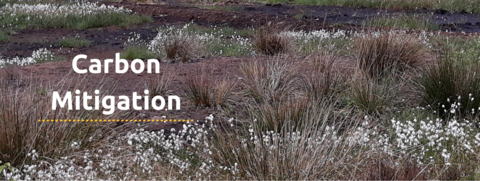
Mosses are great carbon stores
With the Greater Manchester Mayor’s ambition for the city region to achieve carbon neutrality by 2038 and an increasing corporate focus on carbon reduction efforts, GMCA is in a strong position to develop a Carbon Mitigation Facility to provide funding and support to habitat restoration projects in Greater Manchester that sequester or reduce emissions of carbon. A centralised Carbon Mitigation Facility would allow local project developers to overcome challenges in navigating opaque carbon markets by harnessing increasing corporate and public demand for high-quality, local carbon offsets that can be seen, understood and trusted.
“Carbon Offset” schemes compensate for carbon dioxide (“CO2”) and other greenhouse gas (“GHG”) emissions released into the atmosphere through human activity. A “Carbon Credit”, representing one tonne of CO2, allows emissions to be traded and compensation projects to be funded. Voluntary carbon markets provide revenue opportunities for a range of initiatives that reduce or avoid emissions, including sustainable land use, renewable energy and energy efficiency.
£44 million was spent on voluntary carbon offsets by UK companies in 2015, mainly in international markets. In efforts to encourage the development of domestic voluntary schemes, bespoke verification schemes have been set up, notably the Woodland Carbon Code established by the Forestry Commission in 2011 and the Peatland Code launched by International Union for Conservation of Nature in 2015, although challenges remain in applying verification standards across all peatland habitats, such as lowland and fen.
With Greater Manchester’s ambition to become carbon neutral by 2038, interest from companies in domestic offsets, and a major need for restoration of Greater Manchester’s carbon sink landscapes, GMEF is seeking to develop business models based on income generated by voluntary carbon credits.
